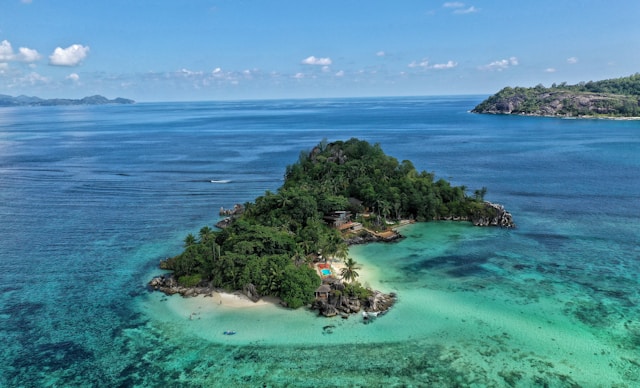
by Fintechnews Africa
28 February 2024
South Africa is the latest country on the African continent to be jumping on the digital nomad bandwagon, joining jurisdictions such as Namibia, Mauritius and Cape Verde with a proposed immigration program targeting remote workers.
Earlier this month, the South African government published draft regulations for a digital nomad visa, inviting the public to share feedback and comments that will shape the eventual forthcoming visa program. The move aims to boost tourism and investment and attract skilled foreign nationals to grow the economy.
The draft proposes a set of amendments that would overhaul immigration regulations. In particular, it proposes the creation of a digital nomad visa that would offer an immigration pathway for remote workers, which is currently unavailable in South Africa. The visa program would be available to those earning a defined amount of income and operating in certain industries.
According to the draft, applicants must earn at least ZAR 1 million (~US$53,000) annually and must work for a foreign employer under a contract which partially requires them to conduct certain activities in South Africa. These works should relate to:
- teaching at an international school;
- a person involved in the entertainment, film or advertisements industries traveling to South Africa to perform or work;
- a foreign journalist seconded to the country by a foreign news agency;
- a visiting professor or lecturer or an academic researcher;
- an artist who wishes to write, paint or sculpt;
- a tour leader or host of such a tour; or
- a religious leader of a recognized religious organization or denomination.
If the visa were to be issued for a period not exceeding six months within a 12-month period, the holder would not need to register with the South Africa Revenue Service, implying an income tax exemption for foreign employees living in the country for less than six months.
Other provisions and amendments proposed as part of the draft include changes in the status of spouses, parents and children of South African nationals or permanent residents, relaxed rules for people holding a Critical Skills Work Visa, Corporate Visa, Business Visa or a permanent residency authorization with a certificate of registration, and eased police clearance certificate requirements.
The public has until March 29, 2024 to share their feedback on the proposed changes and rules.
If approved, the new regulations would make South Africa the fifth country in Africa to offer a digital nomad visa program, joining Mauritius, Namibia, Seychelles and Cape Verde.
Mauritius

image via Unsplash
Mauritius launched a digital nomad visa called the Maurititus Premium Travel Visa in October 2020, allowing remote workers to stay on this island for more than six months to a year.
Under this digital nomad visa, Mauritius Premium Travel Visa holders cannot work for a Mauritian employer. They must earn their income overseas and remain tax residents in their home country for 183 days. Visa holders can stay in the country for up to one year with an option to renew.
Requirements include being a retiree or a professional working or running a business remotely, earning at least US$1,500 and an additional US$500 per dependent per month, producing a proof of long-term stay work plan, producing a proof of accommodation, and having travel and health insurance, among other eligibility criteria.
Namibia
Namibia introduced its Digital Nomad Visa program in October 2022, allowing foreign professionals to live and work in the country for up to six months.
Applicants are required to prove that they earn a monthly average income of US$2,000, in addition to an additional US$1,000 per month for an accompanying spouse and US$500 per month per every accompanying child.
Applicants must also have valid travel documents as well as health and travel insurance, and provide a police clearance certificate from their country of origin. Other documents to produce include a six month bank statement, and a motivation and declaration that the applicant is either self-employed or has a non-Namibian employer.
Seychelles

image via Unsplash
The Seychelles Workcation program, launched in April 2021, allows both self-employed visitors such as a company, business owner, a freelancer or employed individuals to work remotely in Seychelles for 30 days up to one year.
Applicants must meet a few criteria, including holding a valid passport, providing documents as a proof of being either an employee of a foreign company or a business owner, providing proof of income or wealth, and holding a valid medical and travel insurance policy.
To apply, the individual must apply at least 60 days before arrival through the official website. Once the visa is approved, they need to complete the application for entry in Seychelles by applying through the Seychelles e-Border platform.
Cape Verde

image via Unsplash
Introduced in December 2020, the Cabo Verde Remote Working Program is a temporary work and tourism visa lasting six months, with the opportunity of renewal for another six months. The program is meant for people who are self-employed and who are able to work remotely, using the Internet and other electronic and communication tools that don’t require a fixed office.
Applicants wishing to apply for the visa must complete and submit a set of document electronically, including passport size photos, passport bio pages, a proof of income and means of subsistence such as an account statement of the last six months or a copy of last three monthly salary receipts, an individual health and travel insurance or family package, and a copy of an accommodation booking.
Eligibility criteria include having a minimum average bank balance of at least EUR 1,500 over the last six months, be a citizen from a country in Europe, North America, the Community of Portuguese Speaking Countries (CPLP) or the Economic Community of West African States (CEDEAO), and having a clean criminal record check from their home country.
Featured image credit: Freepik


